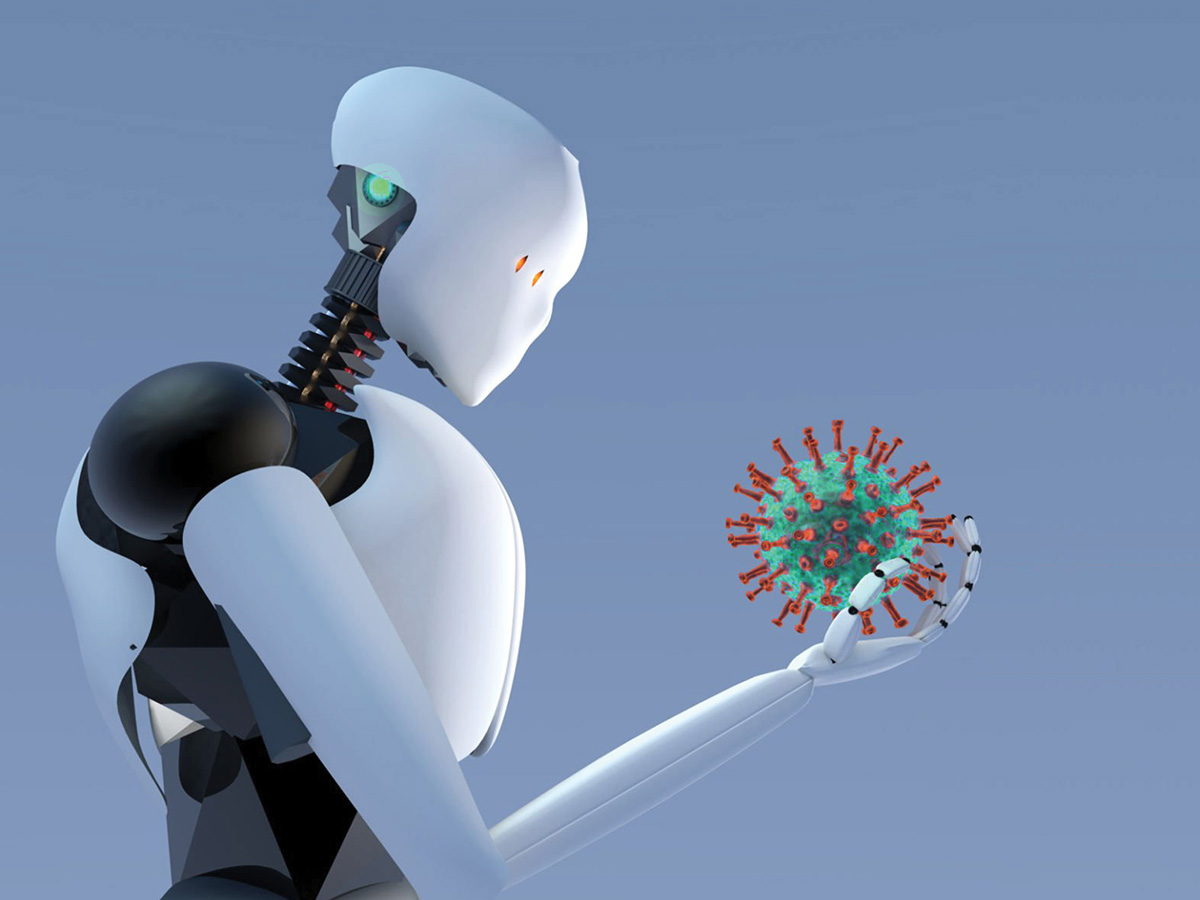
Issue 44
Nov 2022
COVID-19 SPECIAL

There have been over 550 million confirmed COVID-19 cases since the start of the pandemic. Out of the abundance of symptoms that COVID patients have reported experiencing, the loss of taste and smell are the most common.
Prior to the pandemic, studies have revealed that patients with poorer smell function may suffer from depressive conditions, higher mortality, and a poorer quality of life in general. This condition has exacerbated since the dawn and development of COVID-19.
Globally, these two are ubiquitous symptoms among COVID-19 patients, amounting to an inordinate number of 50%. Yet little is known about their clinical course, or the number of patients who develop this persistent dysfunction. Hence, to address this gap in knowledge, a team of Singaporean and international researchers from the UK and the US spearheaded an investigation into the prognosis and persistence of smell and taste dysfunction in patients with COVID-19.
In this study titled “Prognosis and persistence of smell and taste dysfunction in patients with COVID-19: meta-analysis with parametric cure modelling of recovery curves” published by the British Medical Journal, the researchers found that an expected 5% of the global population may develop issues with their sense of smell and taste in the long run, after coming down with COVID-19.
The international collaborative research team is led by Associate Professor Toh Song Tar, Head of the Department of Otorhinolaryngology at the Singapore General Hospital (SGH), and Dr Benjamin Tan Kye Jyn, House Officer at the National University Hospital. Following their lead are the current and newly graduated medical students from the NUS Yong Loo Lin School of Medicine.
Their goal was to investigate and clarify in COVID-19 patients, the recovery rate of their smell and taste, the proportion of persistent dysfunction in smell and taste, as well as the prognostic factors associated in the recovery process.
15 million
patients report long-lasting smell dysfunction,
12 million
patients report long-lasting taste dysfunction
30 days after initial infection, only
74%
of patients restore their sense of smell,
79%
of patients restore their sense of taste
Based on 18 observational studies involving 3,699 patients from 12 countries, 4,180 records were wielded in the analysis by the research team. They utilised a mathematical technique known as cure modelling to estimate self-reported rates of smell and taste recovery. Thereafter, they sought to identify the key factors associated with the duration and likelihood of recovery.
The patients’ recovery curves are consistent with the findings of recent studies, which suggest that recovery from smell and taste dysfunction mostly occurs early in the course of COVID-19. More importantly, the cure models are consistent with other studies that explored the point prevalence of persistent dysfunction at long follow-up durations of six months to one year.1,2
Millions have lost their sense of smell and taste
They discovered that 5.6% and 4.4% of patients worldwide might develop long-lasting self-reported smell and taste dysfunction after recovering from COVID-19 respectively, a number amounting to 15 million and 12 million patients, as of July 2022.
Another finding was that, at 30 days after initial infection, only 74% and 79% of patients had their sense of smell and taste restored respectively.
Upon analysis, female patients, as well as patients with a greater initial severity in their dysfunction, were less probable to recover their sense of smell and taste. Patients with nasal congestion were less likely to recover their sense of smell as well.
While most patients are expected to recover their sense of smell or taste within the first three months, a group of patients might develop long-lasting dysfunction. For example, smell dysfunction could predict the development of depression3 and is potentially associated with neurodegenerative disorders. This requires close healthcare interventions like timely identification, personalised treatment, and long-term follow-ups.
Implications for healthcare professionals
The implications of this study hold great relevance, especially to general doctors and otolaryngologists, in their work to counsel and consult patients with smell and taste disorders post COVID-19. It has also highlighted the glaring far-reaching problems associated with taste and smell loss.
Adding heft to the ongoing discovery of long-COVID in patients, Prof Toh wants to draw medical attention to this group of patients.
“We hope that the results of this study will draw the attention of the medical fraternity worldwide to the long-term issues associated with taste and smell loss. Healthcare providers around the world should be cognisant of this, given the huge number of affected individuals who need support and help,” said Prof Toh.
Yet, at the same time, the project symbolises a hopeful start to the unearthing of COVID-19 related dysfunctions, and the great potential to help patients.
“Seeing this research project through from start to finish has been incredibly fulfilling. We are grateful to have worked with an international consortium of leading experts in this field, including those who first discovered the link between COVID and loss of smell and taste. We hope that our findings will encourage patients and provide greater clarity on their recovery,” added Dr Benjamin Tan, the first author of the paper, and recent graduate of NUS Medicine.
“We also hope that governments and healthcare professionals worldwide will start to realise the magnitude of this problem, as the global healthcare system is not yet equipped to manage this aspect of long COVID.”
Boscolo-Rizzo P, Guida F, Polesel J, et al. Self-reported smell and taste recovery in coronavirus disease 2019 patients: a one-year prospective study. Eur Arch Otorhinolaryngol2022;279:515-20. doi:10.1007/s00405-021-06839-w pmid:33963433.
Boscolo-Rizzo P, Menegaldo A, Fabbris C, et al. Six-Month Psychophysical Evaluation of Olfactory Dysfunction in Patients with COVID-19. Chem Senses2021;46:bjab006. doi:10.1093/chemse/bjab006 pmid:33575808.
Eliyan Y, Wroblewski KE, McClintock MK, Pinto JM. Olfactory Dysfunction Predicts the Development of Depression in Older US Adults. Chem Senses2021;46:bjaa075. doi:10.1093/chemse/bjaa075 pmid:33197253.
More from this issue



